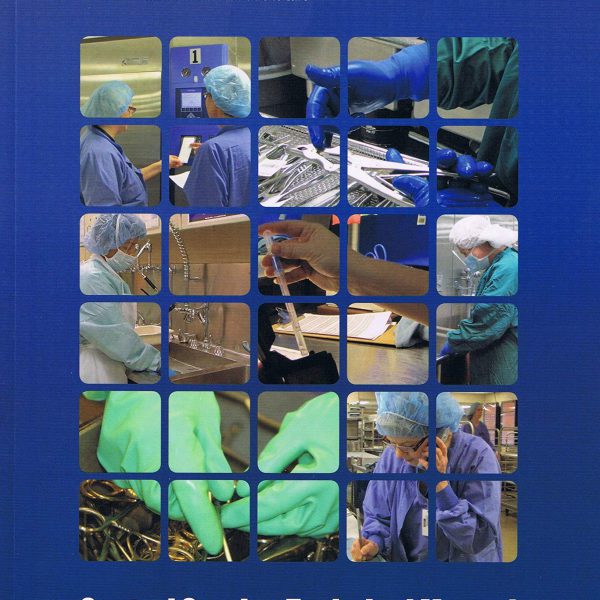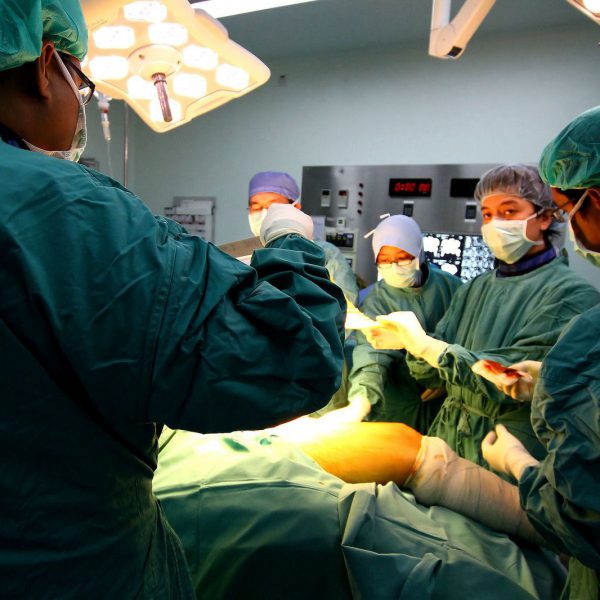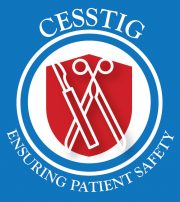Programs
February 1, 2021 2023-05-09 12:51Programs
Academic Programs

Program Synopsis
Central service technicians, also called sterile processing technicians or central service (CS) professionals, play a critical role in preventing infection by cleaning, inspecting, disassembling, assembling, processing, storing, and distributing medical supplies. The central service department of a health care facility is the hub of all activity surrounding supplies and equipment needed for surgery and patient care.
Central service technicians learn the principles of sterilization and sterile processing. Sterile processing is the process of cleaning medical supplies and preparing them to be used again. First, tools are disassembled, cleaned, and disinfected using both manual and mechanical techniques. Tools and equipment are inspected for any damages to ensure they can be reused. Once a piece of medical equipment is completely cleaned and disinfected, it will be sterilized and packaged for reuse. Single use instruments are discarded or thrown out. Tools are then reissued and stored in a sterile storage area.
Scope of practice
The role of a central service technician varies and can change depending on their work environment. It can even change on a day-to-day basis, depending on where they work. In general, their responsibilities revolve around preventing infection in patients through:
- Decontaminating, cleaning, and sterilizing surgical instruments, supplies, medical devices, and equipment
- Processing, assembling, packaging, storing, and keeping inventory of medical devices and surgical supplies (including gloves, surgical masks, and needles)
- Distributing supplies and equipment to departments that need them
Work environment
Hospitals are the primary employer of central service technicians, though some employment growth is expected in offices and clinics of physicians, including outpatient care centers, and ambulatory surgical centers, as well as nursing homes and assisted living facilities.
Central service is an emerging profession and is expected to grow as the number of surgeries increase. With technological advancements in medical supplies, instruments, devices, and equipment, there is a high demand for central service technicians in hospital and clinical settings.
According to the Bureau of Labor Statistics, central service technicians can expect a salary of $37,000.
Senior Secondary/High School Certificate Examination (SS/HSCE) or West African Senior Secondary School Certificate (WASSCE) or equivalent With an aggregate score of 24 or better in six subjects including passes in: Three Core Subjects (including Core English, and Core Mathematics) plus Three Electives.
Program Type: Career Diploma
Program: Central Service Technician
Full Payment Option:
Total Base Price: $1,200.00
This includes:
1) Tuition: $250.00
2) Clinicals: $100.00
3) Physical examination: $100.00
4) Books + shipping & handling from USA $300.00
5) Board Exams: $300.00
6) Application Fee: $50.00
7) Registration Fee: $50.00
7) Technology Fee: $50.00
For Instalment Payment, Initial Deposit: $500.00

Program Synopsis
Surgical technicians are members of operating room teams, which
include the surgeon(s), anesthesiologist and circulating nurse. Surgical
technologists work under the delegatory authority and supervision of the
surgeon unless prohibited by state law or hospital policy.
Before an operation, they help prepare the operating room by setting up sterile surgical instruments, equipment and supplies, such as drapes, gowns, gloves, suction tubing, and receiving solutions and medications from the circulator. Surgical technologists assemble the sterile equipment, check to ensure it is all working properly and make adjustments as necessary.
They assist the surgeon with putting on his/her gown and gloves,
as well as assisting the surgeon in placing the sterile drapes on the patient
to create the sterile field.
During the surgical procedure, the surgical technologist is responsible for anticipating the needs of the surgeon by passing instruments and providing needed supplies such as sponges, performing counts of the sponge, sharps, and instruments, providing solutions and medications to the surgeon, receiving tissue specimens to be passed off to the circulator and ensuring there are no breaks in sterile technique in order to prevent the patient from acquiring a surgical site infection.
Surgical technician may fulfill the assistant circulator role based on state law and/or hospital policy. In this role, a technologist assists in transporting patients to the operating room helps position the patient on the operating table and prepares the patient for surgery by performing the skin prep of the incision site(s).
During the procedure, the surgical technologist will assist with obtaining additional supplies that the first scrub surgical technologist needs, such as sponges or suture; assist with counts; replace full suction containers; provide sterile dressings at the end of the procedure; and assist with moving the patient from the operating room table to the stretcher for transport to the recovery room.
CESSTIG’s Surgical Tech training will give you the following skills:
- Scrub, gown, and glove before procedures
- Organizing sterile supplies and equipment
- Assisting surgeon and assistant don gown and gloves
- Draping patients
- Passing instruments and assisting with procedures
- Cleaning up OR suite and transferring patients
Your training will include both classroom and hands-on clinical practice. When you complete this program, you will be awarded a diploma as a surgical technologist and will take the national Surgical Technologist Certification examination.
The Surgical Technologist program is a member of and accredited by the Accreditation Review Council on Education in Surgical Technology and Surgical Assisting.
Senior Secondary/High School Certificate Examination (SS/HSCE) or West African Senior Secondary School Certificate (WASSCE) or equivalent With an aggregate score of 24 or better in six subjects including passes in: Three Core Subjects (including Core English, and Core Mathematics) plus Three Electives.
Note: A science background is a plus but not necessarily required.
Program Type: Career Diploma
Program: Surgical Technician
Full Payment Option:
Total Base Price: $15,000.00
This includes:
1) Tuition: $8,000.00
2) Clinicals: $3,000.00
3) Physical examination: $600.00
4) Books + shipping & handling from USA $2,000.00
5) Board Exams: $1,000.00
6) Application Fee: $100.00
7) Registration Fee: $100.00
7) Technology Fee: $200.00
For Instalment Payment, Initial Deposit: $7,000.00

